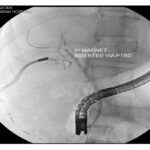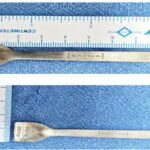August 20, 2018 – As the conflict in northwest Syria escalates, WHO is appealing for US$ 11 million to provide life-saving health care to people in parts of Aleppo, Hama, Idleb, and Lattakia governorates.
Hundreds of thousands of people, many of whom have been previously displaced, may be displaced yet again as they flee growing insecurity and violence. The situation in Idleb is particularly dire; more than half a million people have been displaced to and within the governorate since January 2017.
Growing levels of crime and inter-factional fighting are adding to the insecurity, and targeted assassinations and kidnappings are on the rise.
Many internally displaced people (IDPs) are living in makeshift, overcrowded shelters with little access to health care and safe water and sanitation. Poor health following years of conflict makes them vulnerable to communicable diseases. Rates of acute malnutrition are likely to increase. Moreover, a decline in vaccination coverage rates may lead to renewed outbreaks of vaccine-preventable diseases such as polio, jeopardizing WHO’s efforts to eradicate the disease worldwide.
“The health situation in northwest Syria is already dire and looks set to deteriorate. If WHO does not receive additional funding, more than two million people caught in the cross-fire may have no access to essential health care services, including life-saving trauma care,” said Dr Michel Thieren, WHO Regional Emergencies Director. “As matters stand, over half of the country’s public health care facilities have been destroyed or forced to close after years of conflict.”
Facing widespread need across many parts of Syria, the humanitarian community is finding itself increasingly compromised as a gaping funding deficit for health has placed millions of vulnerable Syrians at increased risk.
WHO will use any additional funds received from donors to support primary health care, childhood vaccination and trauma services in northwest Syria. WHO will also strengthen referral systems to ensure that critically ill and wounded patients can be transferred to hospitals for specialized care. WHO will also facilitate medical evacuations and deliver essential life-saving and life-sustaining medicines and equipment to hospitals, clinics and mobile teams to help them treat people in need.
Critical funding shortage threatens WHO’s response in northwest Syria








